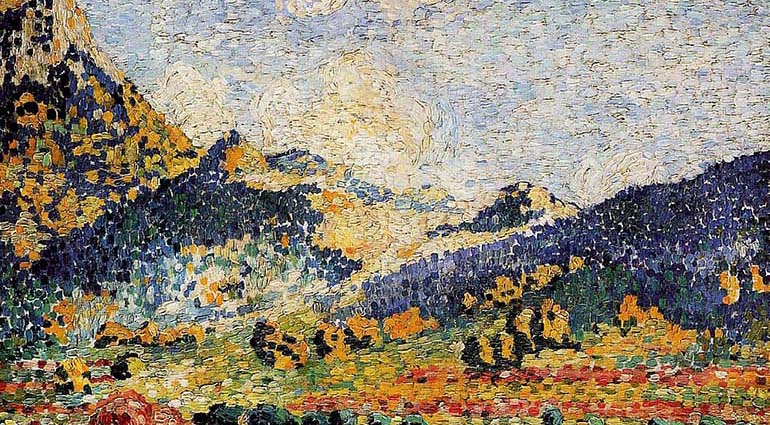Connecting the Dots

Read: Luke 24:13–32 | Bible in a Year: Ecclesiastes 4–6; 2 Corinthians 12
Beginning with Moses and all the Prophets, he explained to them what was said in all the Scriptures concerning himself. Luke 24:27
In the 1880s French artist Georges Seurat introduced an art form known as pointillism. As the name suggests, Seurat used small dots of color, rather than brush strokes of blended pigments, to create an artistic image. Up close, his work looks like groupings of individual dots. Yet as the observer steps back, the human eye blends the dots into brightly colored portraits or landscapes.
The big picture of the Bible is similar. Up close, its complexity can leave us with the impression of dots on a canvas. As we read it, we might feel like Cleopas and his friend on the road to Emmaus. They couldn’t understand the tragic “dotlike” events of the Passover weekend. They had hoped that Jesus “was the one who was going to redeem Israel” (Luke 24:21), but they had just witnessed His death.
Suddenly a man they did not recognize was walking alongside them. After showing an interest in their conversation, He helped them connect the dots of the suffering and death of their long-awaited Messiah. Later, while eating a meal with them, Jesus let them recognize Him—and then He left as mysteriously as He came.
Was it the scarred dots of the nail wounds in His hands that caught their attention? We don’t know. What we do know is that when we connect the dots of Scripture and Jesus’s suffering (vv. 27, 44), we see a God who loves us more than we can imagine.
Jesus laid down His life to show His love for us.
INSIGHT:
In today’s reading, Jesus came alongside two disciples traveling to Emmaus (v. 13). This appearance took place in the “nearly evening” of Sunday (vv. 29–30). The gospel writer Mark said, “Jesus appeared in a different form to two of them” (Mark 16:12). This was why they did not recognize Him until later (Luke 24:16, 31).
No comments:
Post a Comment